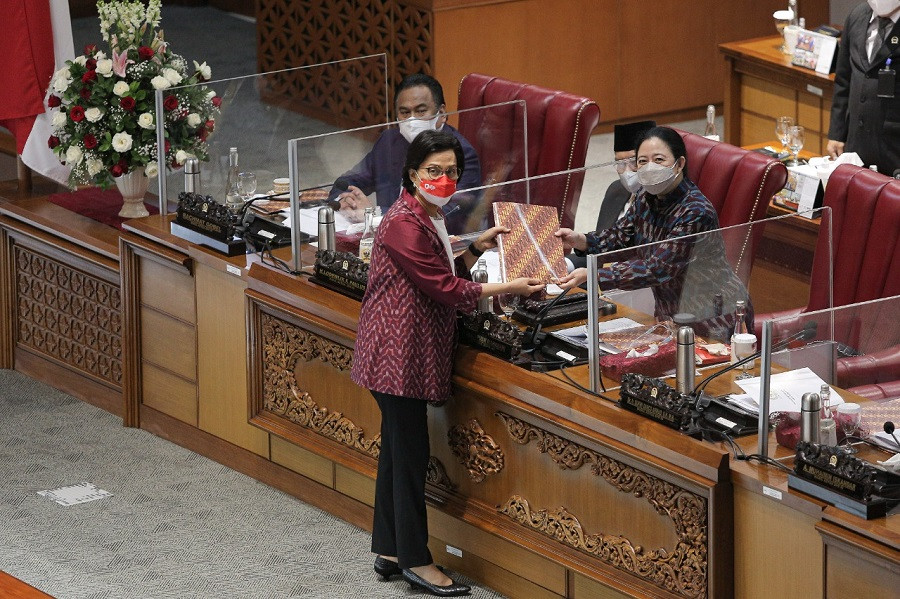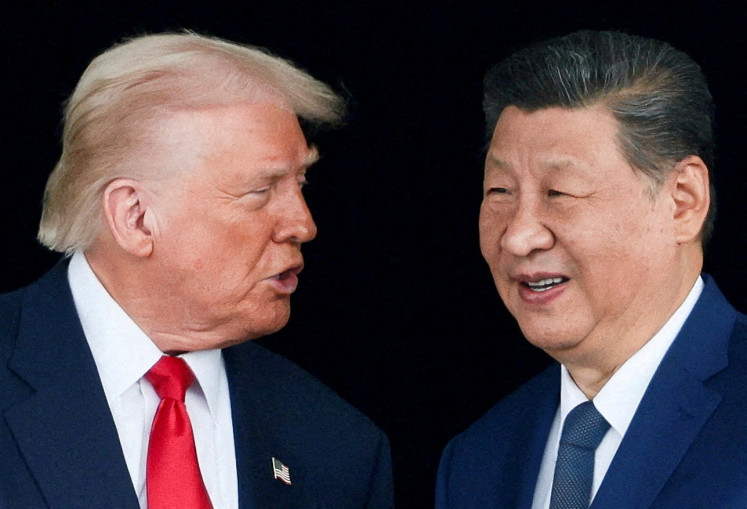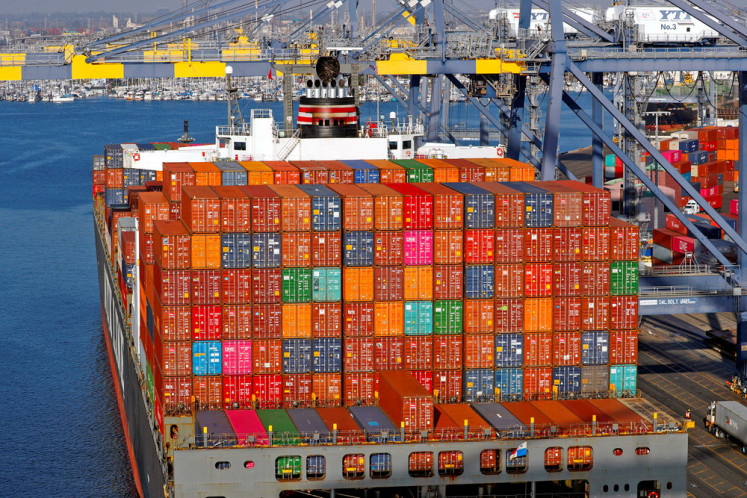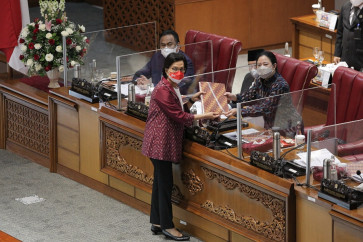Popular Reads
Top Results
Can't find what you're looking for?
View all search resultsPopular Reads
Top Results
Can't find what you're looking for?
View all search resultsSubsidies, falling commodity prices spell end for budget surplus
The once in a blue moon budget surplus Indonesia achieved in the first six months of 2022 will prove unsustainable for the full year, experts say.
Change text size
Gift Premium Articles
to Anyone
I
ndonesia posted six months of budget surplus in the first half of 2022, a once in a blue moon that makes it stand out among both emerging and developing countries, but experts say that trend will not last through the remainder of 2022.
By the end of June, the government had racked up a budget surplus of Rp 73 trillion (US$4.9 billion) or 0.39 percent of GDP, which compares with a Rp 283 trillion deficit seen in the equivalent period of last year, Finance Ministry data show.
According to the ministry, the surplus was owed to a significant increase in revenue, which was up almost 50 percent year-on-year (yoy), thanks to surging commodity prices, recovered economic activity and the implementation of the 2021 Tax Harmonization Law.
Dian Ayu Yustina, an economist with state-owned lender Mandiri, told The Jakarta Post on Wednesday that the surplus could continue as long as commodity prices remained high, yet the odds of a full-year surplus were minimal.
“The state budget will [be] in deficit at the end of 2022, but we think the deficit could be lower than previously expected,” Dian said.
With a surplus, the government could cover most of its spending needs from incoming revenue rather than by taking up debt through the issuance of bonds, which would allow it to avoid some of the burden of surging global interest rates that make borrowing more costly.
Debt issuance fell to Rp 191.9 trillion in the first half of the year, a drop of more than 50 percent yoy. That figure is just a fifth of the total issuance planned for this year, whereas debt issuance often nears half of the full-year target after the first six months.



















